
- Details
- Written by Patrycja Jadczak
- Category: Obesity
- Hits: 4425
Inside the World of Erotic Weight Gain, Also Known as Feederism
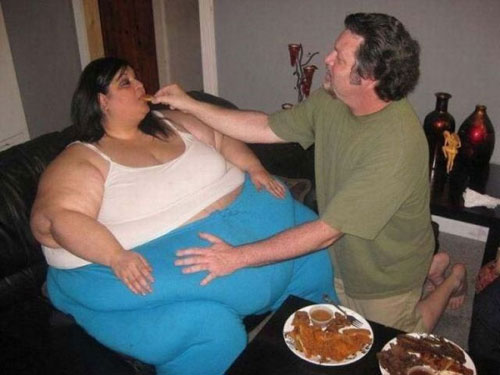
When people gain weight, feeling sexy is rarely cited. However, for those in the feedist community, the opposite is true—overeating and weight gain is the ultimate aphrodisiac. The gaining fetish (which goes by many names and all of which will be referenced) is a subcategory of fat fetishism—a strong, potentially exclusive sexual attraction to overweight people. Within the feederism fetish, one partner (typically male) derives erotic enjoyment from feeding food to their partner to gain weight. The “feedie” enjoys being fed and gaining weight, sometimes to a state of immobility.
Dr. Jenni Skyler, sexologist and licensed marriage and family therapist for AdamEve.com, has had experience with those who practice the fetish and explains “encouragers” (vernacular typically used for gay men) or “feeders” (who are typically straight men), enjoy piloting caloric intake. To them, changing the human body is the ultimate kink. “They like the aspect of actually feeding their partner as the combination of food and sex is highly erotic for many people,” she explains. “Conversely, many feeders report feeling aroused by someone who appreciates their obesity and continual weight gain. They also enjoy being fully taken care of.”

For many in these communities, the duality of power and humiliation is also an erotic turn on. A study from 2009 concluded that “fat admirers” find overweight people attractive because they purposely reject sociocultural norms of attractiveness. Even emaciated figures were rated higher among these men.
Feederism is similar to BDSM, as the feeder/feedee relationship is a dominant and submissive bond. One takes charge, the other takes orders. The online community surrounding feederism is active and tightly knit. Many frequent sites like Fantasy Feeder to share recipes, experiences and discuss the healthiest ways to get fat fast.
Many believe the feeding fetish was founded by gay men, courtesy of the “Girth and Mirth” movement in the ‘70s, when a sizable network of social groups formed to promote positive attitudes toward larger bodies in the community. In 1996, the first website dedicated to gay men into weight gain launched, introducing the heterosexual community to the fetish. It’s been rapidly growing ever since.
In 2013, an anonymous writer detailed insightful experiences with the feederism fetish in an article titled, I Have a Sexual Fetish For Being Fed and Gaining Weight. “I love eating very caloric, rich foods, and I practically squeal with glee if I see the numbers on the scale climb,” she writes. “I like being called piggy, requested to oink and being accused of being gluttonous and lazy.” To her, the fetish has made being fat something to celebrate instead of something to hate herself for. Jennifer, a 36-year-old feedee, has gained 100 pounds since launching her pay site, NSFW, in 2011.
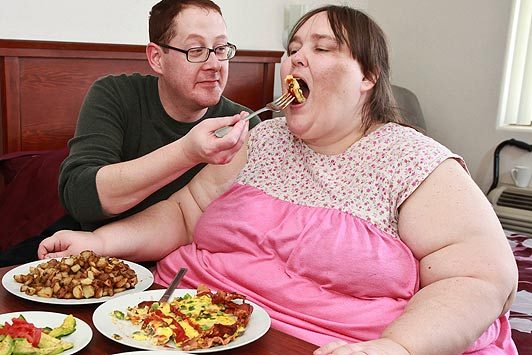
As is true of most fetishes, communication is important when engaging. Being able to discern reality from fantasy and understanding that consent needs to be continually discussed and negotiated is paramount. Some in the community try to manipulate the feedees, of course, pressuring them into doing things they aren’t comfortable with. Some will even pick on their insecurities to get it done. But as long as the rules of this controversial lifestyle/identity/sexual orientation (feedism has been described as all three) are mutually agreed on and the risks are understood, the feed is on. Bon appetit.
- Details
- Written by Patrycja Jadczak
- Category: Obesity
- Hits: 2816
Being heavy is not easy. It is not just one big doughnut party after another. There are so many reasons why people are overweight, and many of those reasons include illnesses and bad circumstances.
A terrible injury, illness, or trauma can make a person pack on the pounds. And even though those who are heavy understand their situations, they too often come to adopt society’s contempt for fat. In short, so many people who struggle with their weight begin to hate themselves. Instead of seeing their beauty, they focus on how a shallow society views them. Then they incorporate that hateful view into their self image.
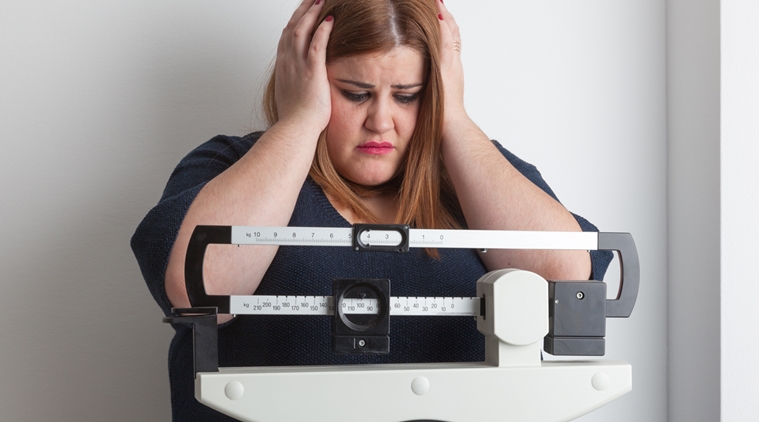
This should never happen, of course, because we all have things about our appearances that we wish we could change. Yet, time and time again, heavy people can become self loathing and angry at themselves. Inside their heads, this little voice says ‘you aren’t good enough.’ When truth is told, these are some of the most beautiful individuals you will come across. There is nothing wrong with them. People come in all shapes and sizes, and beauty transcends our outward appearances.
It is striking that in today’s society, being mean to fat people is almost applauded. You see fat jokes on almost every network, which tells people it is OK to berate those who are heavy. Almost everywhere you look, you see skinny as the ideal, and woe to those who don’t fit that ‘ideal.’
Fat people take notice of the subtle and not so subtle jabs against them. And when you are constantly told you are not good enough, that you are wrong, many times you start to believe it. Those who have dealt with weight their entire lives know how they are viewed and will often make fat jokes about themselves in order to keep others from hurting them with the same cutting words.
Basically, they ‘cut’ themselves before they can be jabbed by someone else. The sad part is that many don’t even realize that they have adopted this hated self image. They may make the fat jokes about themselves without seeing what they are doing. Every time you make a disparaging comment about yourself, you die a little inside. You are scarring your soul. What you are saying is ‘I am ugly and wrong.’ That is simply not true.
Though others can be cruel, we can be our most nasty critics. The things that run through our heads, the self hate, can be overwhelming. If you don’t believe it, create a diary and log each time you have a negative thought about yourself. If you do this, you will be shocked at how much you tear yourself down. You will find that when others treat you badly, you will join in with the bullies and be worse to yourself in your thoughts.

For example, say you are sitting down to eat. You have a plate of your favorite food, and instead of enjoying it, you berate yourself and say you are a ‘pig’ for eating such treats. You may feel embarrassed that you are eating at all. Of course, flogging yourself like that does nothing for your self worth. All this does is reinforce a bad self image, and it prevents you from loving yourself.
You deserve happiness and the good feelings that come with knowing that you are OK the way you are. Weight may be difficult for you, but that doesn’t mean you cannot live and enjoy your life. The time we have on Earth is too short to worry about fitting into jeans or not being a certain size. I guarantee you that if you don’t learn to love yourself, even if you lost weight, you still would not be happy. You won’t find happiness in a pair of skinny jeans.
You need to come to terms with who you are and embrace your heart. Nourish yourself by telling yourself that you are fine. You look beautiful, no matter what anyone says.
If you feel like everyone is against you and that no one understands, remember that I understand. You need to know that there are many, many people out there who know what it is to struggle with weight, and they do not judge you. And those who show hate should not be on your radar. They are joy suckers who feed on hurting others to make themselves feel better. Ignore them.
Sometimes you need to hear that you have permission to like yourself. Give yourself a break. Life is hard and you deserve to smile. No one knows your situation better than you do, and others have no right to judge you. Look at the upcoming holiday season as a good thing and don’t worry about all the delicious foods you will come across. Enjoy those meals and love yourself.
I can guarantee that when this life comes to an end and you cross over, God will not ask you why you didn’t lose weight. Instead you will be asked why you didn’t love yourself.
- Details
- Written by Patrycja Jadczak
- Category: Obesity
- Hits: 1169
Alcohol and weight gain
Will drinking alcohol make you gain weight? The answer isn't as straightforward as you may think.
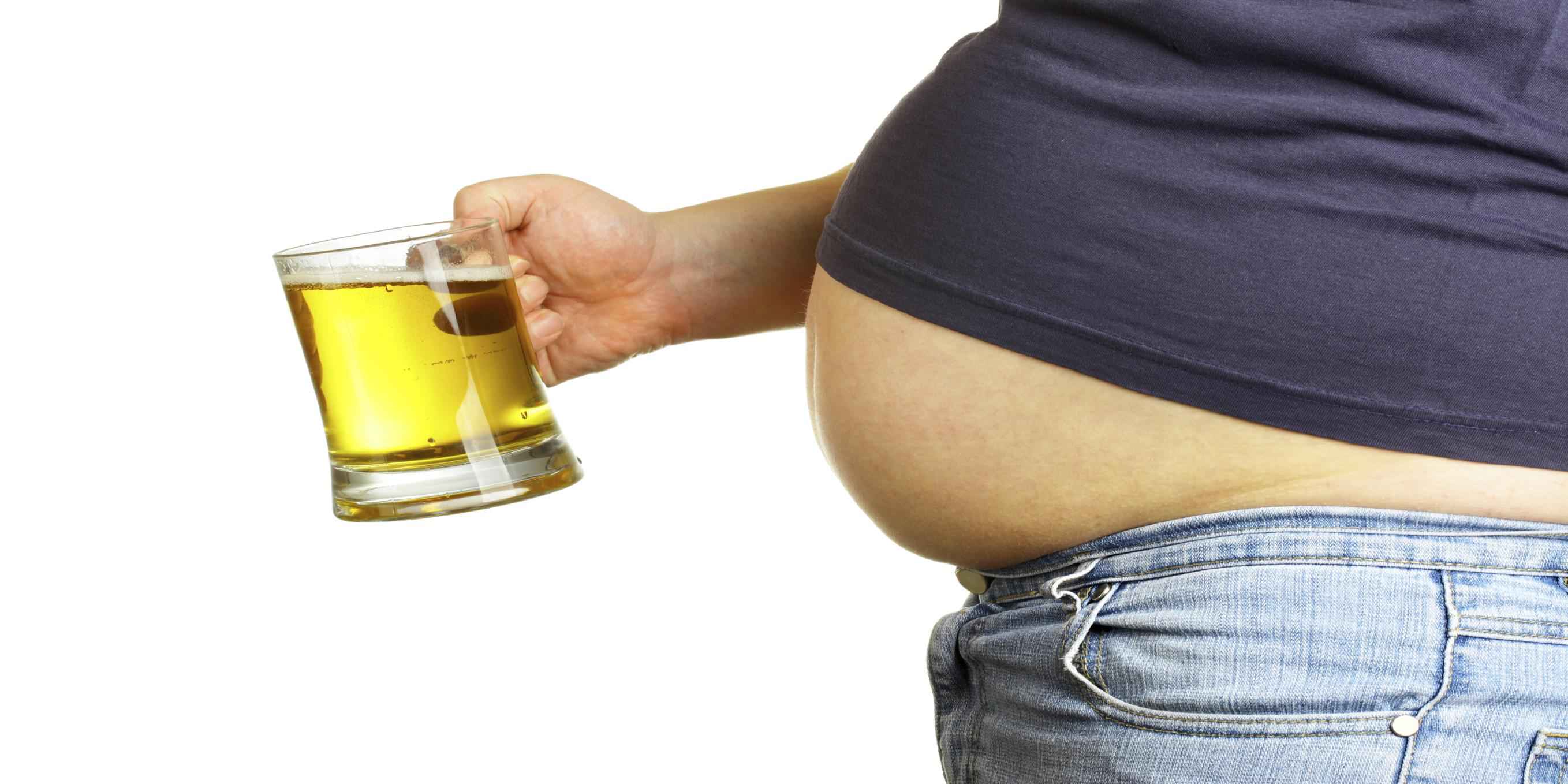
The Foundation for Alcohol Research and Education (FARE) conducted a research on alcohol and obesity and found that:
- It is unclear whether alcohol consumption is a risk factor for weight gain because studies performed to date have found positive, negative or no association.
- Where there is a positive association between alcohol and body weight it is more likely to be found in men than in women.
- The present data provide inadequate scientific evidence to assess whether beer intake is associated with general or abdominal obesity.
- When considering beer, where there is a positive association, it is more likely to be for abdominal obesity (abdominal fat around the stomach) than for general obesity for men and women.
So yes, it's possible to gain weight from alcohol, but it's not inevitable.
Whether or not you personally gain weight from drinking alcohol depends on many factors. These include:
- your behaviours when you drink
- what you drink
- how often you drink
- how much you drink
- what you eat when you drink
- factors that relate to your unique body and lifestyle
- your overall diet
- your genetics
- your gender
- your level of physical activity
- your age
- your health -- for example the presence of other risk factors such as obesity and diabetes.
But remember, drinking alcohol- particularly in excessive amounts - has many other serious health risks beyond possible weight gain, including high blood pressure,heart disease, liver disease, and some cancers. So it's important to monitor your alcohol consumption as part of a healthy diet, regardless of whether or not you're managing your weight.
While the relationship between alcohol consumption and obesity remains unclear, there are good reasons to think that alcohol may play a role:
- It stops your body from burning fat.
- It is high in kilojoules.
- It leads to greater hunger and less satiety (the feeling of being full).
- It causes poor food choices
- Details
- Written by Patrycja Jadczak
- Category: Obesity
- Hits: 1430
Obesity may impact your social and sexual life
Obesity is often associated with laziness and a sedentary lifestyle, which may often percolate into sex lives as well. In men, it also significantly decreases the time they can maintain an erection.
Men who are obese tend to have lower levels of testosterone -- the male sex hormone -- that helps in development of male sexual organs and strong bones. The reduced levels of this hormone may at times lead to erectile dysfunction.
"Obesity is directly linked to hormonal imbalance and lower testosterone levels, which, in turn, can inhibit sexual desire in men," Tarun Mittal, Consultant Surgeon (Laparoscopic and Bariatric Surgery), Sir Ganga Ram Hospital, told IANS.
"The increased body fat leads to more sex hormone binding globulins (SHBG) in the system. SHBG is a natural chemical that binds to testosterone, which means that there is less of the sex hormone left to handle the demands of a normal sex life," Mittal added.
Also, obesity increases the risk of developing a number of serious health conditions, including coronary heart disease, high blood pressure, stroke, Type 2 diabetes, cancer, sleep apnea, gallstones, other heart disease and various types of cancer.
"Obesity can lead to heart problems, breathing difficulties, joint problems and sudden cardiac death," Ashish Bhanot, Chief Bariatric Surgeon, Apollo Spectra Hospitals, New Delhi, told IANS.
"With a high risk of diabetes and high blood pressure, obesity may also take an emotional toll, as some may experience depression, feelings of social isolation, discrimination and an overall lower quality of life," Bhanot added.

Further, apart from the physical intimacy, obesity may also affect the social life, as overweight or obese people are more prone to being bullied, humiliated or ostracised. They are also more likely to engage in bullying behaviour.
The fear of bullying may also lead them to exercise less and stay indoors.
Obesity is directly related to presence of excess fat in the body. Sedentary lifestyle, lack of physical activity, excess consumption of sugars and carbohydrates and lack of exercise are the main causes of the increasing numbers of obesity cases.
However, only a limited number of cases are due primarily to genetics, medical reasons, or psychiatric illness.
"Obesity creates a negative self-image. An individual feels demotivated and there's lack of self-confidence. Such people are unable to accept their weight and their size can leave them sleeping single in a double bed," Deep Goel, Director (Department of Bariatrics) and Gastrointestinal Onco Surgeon, BLK Super Speciality Hospital, told IANS.
Successful weight-loss treatments can help in fighting obesity. This may include making dietary and lifestyle changes, such as eating fewer calories and getting involved in physical activities.
Surgeries through laparoscopic or robotic approach are also performed for weight loss. Obesity surgery works by helping to reduce the number of calories that are available in your body. Surgery is the only available method for morbidly obese patients.
Bariatric surgery is recommended for people with a BMI of 40 or more or if they have a serious health problem related to their obesity. Bariatric surgery also helps in reducing 70-80 per cent of excess within 6-9 months.

Most of the experts say that the natural way of reducing obesity is by controlling the diet and exercising.
"The best way to overcome obesity is by making certain positive lifestyle changes, exercising and adopting a proper fat-loss diet. A healthy lifestyle eventually helps to overcome diseases and enhances the quality of life," Rachit Dua, a Delhi-based advanced certified fitness coach and nutritionist, told IANS.
"Saturated fats do not make you fat, excess of sugar and carbohydrate does. So it is generally advised to strictly stay away from sugars and trans fats. Also, do not over-exert your body with exercise, gradually increase the intensity," Dua suggested.
- Details
- Written by Patrycja Jadczak
- Category: Obesity
- Hits: 1457
What can I do if my child is very overweight?
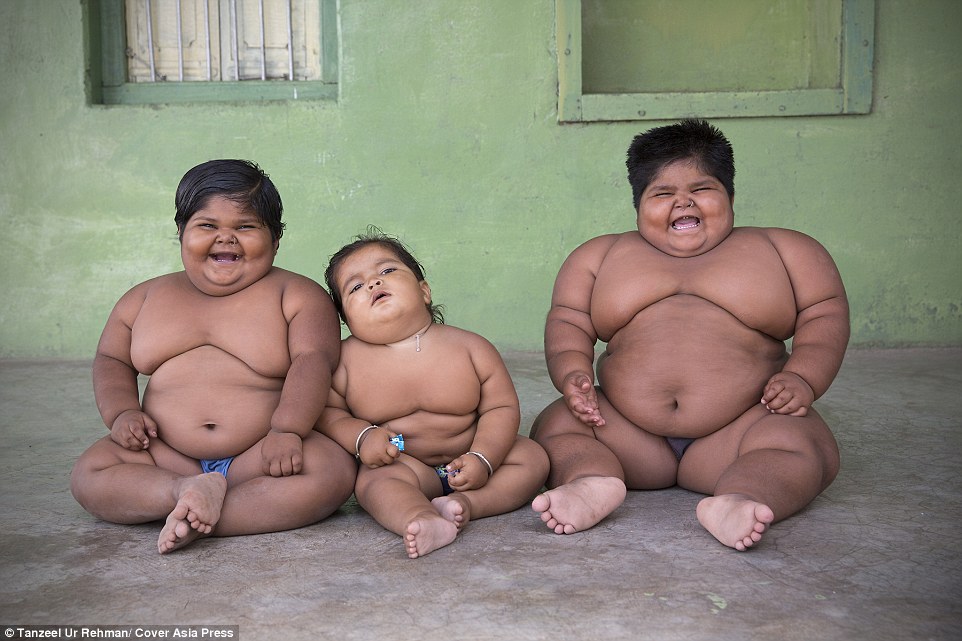
If your child is very overweight, there's lots you can do to help them become a healthy weight as they grow.Very overweight children tend to grow up to be very overweight adults, which can lead to health problems such as type 2 diabetes, heart disease and certain cancers. Research shows children who achieve a healthy weight tend to be fitter, healthier, better able to learn, and are more self-confident. They're also less likely to have low self-esteem and be bullied. As a parent, there's lots you can do to help your child become a healthier weight. Getting them to be more active and eat well is important. Listen to your child's concern about their weight. Overweight children often know they have a weight problem, and they need to feel supported and in control of their weight. Let them know that you love them, whatever their weight, and all you want is for them to be healthy and happy.
Steps for success
Here are 5 key ways to help your child achieve a healthy weight:
- be a good role model
- encourage 60 minutes, and up to several hours, of physical activity a day
- keep to child-sized portions
- eat healthy meals, drinks and snacks
- less screen time and more sleep
If your child has a medical condition, the advice in this article may not be relevant. You should check with a GP or hospital doctor first.
Be a good role model
One of the best ways to instil good habits in your child is to be a good role model.
One of the most powerful ways to enourage your child to be active and eat well is to do so yourself.
Set a good example by going for a walk or bike ride instead of watching TV or surfing the internet.
Any changes you make to your child's diet and lifestyle are much more likely to be accepted if the changes are small and involve the whole family.
Get active
All children need about 60 minutes of physical activity a day for good health.
For younger children it can take the form of active play, such as ball games, and using playground swings.
For older children it could include riding a bike, skateboarding, walking to school, skipping, swimming, dancing and martial arts.
If your child isn't used to being active, encourage them to start with what they can do and build up to 60 minutes a day.
They're more likely to stick to their new activity levels if you let them choose the type of activity they're comfortable with.
Walking or cycling short distances instead of using the car or bus is a great way to be active together as a family.
Child-size portions
Try to avoid feeding your child large portions.
Try not to make your child finish everything on the plate or eat more than they want to.
And avoid using adult-size plates for younger children as it encourages them to eat oversized portions.
Beware of high-calorie foods. Calories are a measure of the energy in food.
Knowing how many calories your child consumes each day, and balancing that with the amount of energy they use up in activity, will help them reach and stay at a healthy weight.
Eat healthy meals
Children, just like adults, should aim to eat 5 or more portions of fruit and vegetables every day. They're a great source of fibre and vitamins and minerals.
Discourage your child from having sugary or high-fat foods like sweets, cakes, biscuits, some sugary cereals, and sugar-sweetened soft and fizzy drinks.
Switch sweetened drinks for water.
Less screen time and more sleep
Help your children avoid sitting and lying around too much.
Limit the amount of time your child spends on inactive pastimes such as watching television, playing video games and playing on electronic devices.
There's no hard and fast advice on how much is too much, but experts say children should watch no more than 2 hours of television each day.
It's been shown that children who don't have the recommended amount of sleep are more likely to be overweight.
The less children sleep, the greater the risk of them becoming obese.
